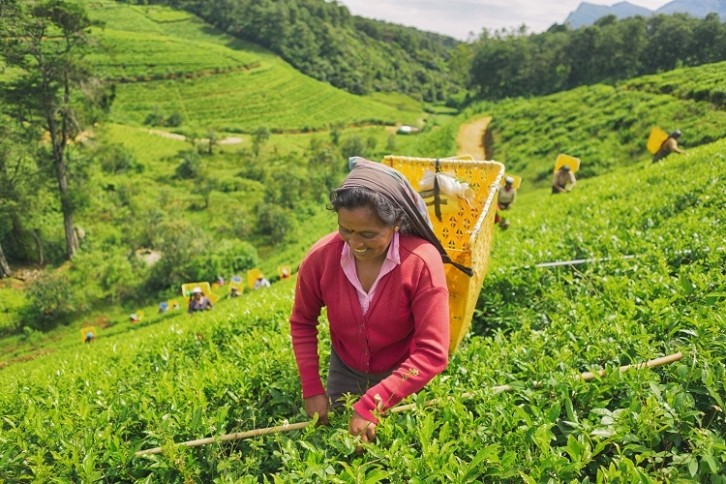After several delays and alterations, the Corporate Sustainability Due Diligence Directive (CSDDD) has finally passed in the European Parliament.
The directive aims to ensure that large companies do due diligence on their supply chains, ensuring that they are free of human rights abuses and environmental crimes. The food industry, with its myriad complex supply chains, will be heavily affected by the directive.
Now that the parameters for the CSDDD have been drawn up and the directive has been voted through, the next stage is implementation.
How will the CSDDD be implemented?
The European Council is expected to adopt the CSDDD before the upcoming EU elections, which will take place on 6-9 June. Twenty days after its adoption by the EU council, it will be published in the Official Journal, and from there, EU member states will have two years to put the directive into their national law, the European Coalition for Corporate Justice (ECCJ) told us.
CSDDD: The Basics
– The CSDDD is a directive which ensures all companies operating in the EU with more than 1000 employees and €450m annual turnover must do due diligence in their supply chain to ensure they hold no environmental and human rights abuses.
– Due to its focus on supply chains, it may also, less directly, affect the operations of smaller companies outside these parameters.
– Failure to comply with the directive could result in fines of up to 5% of a company’s global turnover.
– Companies of different sizes have different timescales to implement the CSDDD. Companies with 5000 employees and €1500m annual turnover will have three years to implement changes, companies with 3000 employees and a €900m annual turnover will have a four-year process, and companies with 1000 employees and a €450m annual turnover will have five years. While the directive also affects companies from outside the EU, they must have €450m annual turnover within the EU to qualify.
Significantly, the time period over when companies must comply with the CSDDD depends heavily on the size of the company, with the largest needing to adopt it first (see panel).
This implementation process will be heavily supervised. “Each EU country is required to designate a supervisory authority responsible for monitoring and ensuring compliance with the CSDDD obligations,” Judith Houston, associate at law firm Mills & Reeve, told FoodNavigator.
“These authorities will supervise companies’ due diligence practices and have the power to impose sanctions, including fines and compliance orders. Beyond the national level, there will be a network of supervisory authorities at the European level. These authorities will collaborate within the European Network of Supervisory Authorities established by the European Commission. The goal is to ensure coordinated enforcement across EU member states.”
How much control will each EU member state have over CSDDD implementation?
The CSDDD is a ‘directive,’ meaning that it is not so much a regulation in and of itself as an instruction towards EU member states to draw up legislation to comply with it.
“A ‘Regulation’ is a binding legislative act that has direct effect in each Member State, whereas ‘Directives’ set out the objectives that are to be achieved and it is up to each Member State to provide their own legislation to meet those objectives,” Jessica Burt, food lawyer at Mills & Reeve, told FoodNavigator.

This means that each EU member state has a certain amount of power in deciding how legislation which complies with the CSDDD will be implemented within their own borders.
“The CSDDD works on a “minimum harmonisation” basis, which means that it sets a minimum required standard but member states can go further and impose more stringent and/or extensive obligations, should they wish,” added Alex Woolgar, partner at Mills & Reeve.
However, he suggested, it is unlikely they will go further, and national laws will try to get as close to the directive’s outline as possible. Going beyond the minimum requirements brings up its own problems. “We would also expect individual member states to stick quite closely to the text of the CSDDD, as imposing more stringent obligations could make a member state an outlier and even be perceived as anti-industry,” Woolgar told us.
One other thing worth noting is that, while the CSDDD previously specified that those affected by a company’s value chain could bring their case forward in a civil court, this section of the legislation has now been removed. Thus, individual member states now have more control over how they deal with such complaints.
How will the CSDDD affect the food industry?
The food industry is vast and multinational supply chains touch every corner of the world. Every human being needs to eat. There are thus many areas in which due diligence is vital.
“The food and agri sector tends to be more labour intensive and with higher overall turnover and so is likely to be more affected than other areas,” Burt told us.
“The high volume, globalised supply chains of major commodity suppliers and brands will mean they are most likely to fall within these boundaries.”
In its initial form, the CSDDD had lower thresholds for companies’ inclusion if they operated in high-risk industries, which included agriculture. However, since France, Italy and Germany abstained from supporting the original draft, the parameters of the directive were changed to remove these constraints.
Even so, the nature of the directive, which ensures that supply chains are thoroughly scoured for potential human rights or environmental abuses, means that smaller companies could still be affected.

“Even if a small and medium-sized company is not directly in scope, it may still be required to comply with the requirements of CSDDD if it is supplying a company that is in scope of the CSDDD. The scope of activities subject to due diligence duties was also narrowed down to exclude product disposal, dismantling and recycling, and composting and landfill, a somewhat positive result for the food industry,” Houston told us.
How does the CSDDD compare with the EUDR?
Of course, the deadline for the implementation of the EU Deforestation Regulation (EUDR) is looming ahead and will expire later this year, with affected companies racing to comply before the deadline. With both pieces of legislation focused on sustainability, what different roles do they play?
The CSDDD, Houston told us, is much broader in scope than the EUDR. “While the CSDDD focuses on due diligence obligations related to human rights and environmental impact for all companies operating in the EU, the EUDR specifically targets companies involved in trading commodities (and products derived from such goods) and aims to prevent goods reaching the EU market that result from recent deforestation, forest degradation or breaches of local environment and social laws,” she told us.
EUDR and human rights
While the EUDR mainly focuses on deforestation, companies will also have to fulfil certain other criteria to fully conform to it. For example, they will have to ensure that their products are grown in accordance with human rights, local land rights, labour rights, and protection of indigenous people.
“In addition, the CSDDD establishes a duty on organisations to develop a plan to align their business strategy with the goal of limiting global warming to 1.5°C, in accordance with the Paris Agreement, whereas the EUDR does not specifically address climate transition planning.”
However, while the CSDDD only targets large companies with an employee-count over the threshold of 1000, the EUDR does not have this limitation and targets all companies.
Could antitrust laws impact the CSDDD?
Because the legislation requires a lot of cooperation between different companies at different points in the supply chain, there is a risk that it could be affected by antitrust legislation.
This, according to Woolgar, is not a concern for European companies, but could influence US companies operating in the EU, who if their turnover is over €450m will still be affected by the directive.
“Co-operation necessary for the purpose of CSDDD seems likely to be deemed co-operation required by law. It is, however, worth noting that the threat of antitrust (competition law) litigation in the US caused the collapse of the Net-Zero Insurance Alliance (a UN-convened insurance alliance focused on net zero targets) last year, so US-headquartered companies with significant EU turnover (bringing them in scope of CSDDD) may naturally be more cautious in the way that they cooperate with third parties to fulfil their obligations under CSDDD,” he told us.
